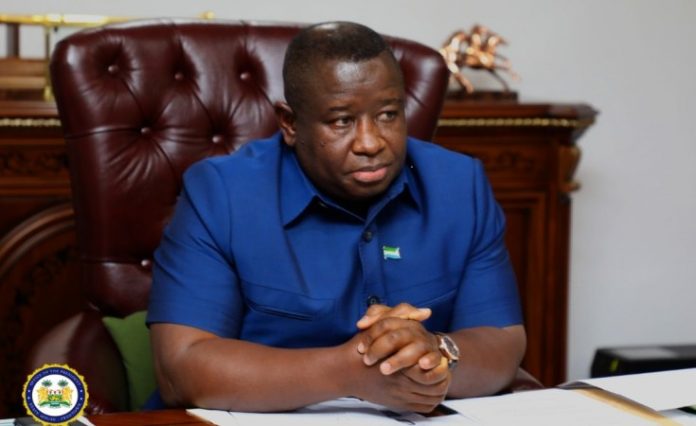By Amin Kef Sesay
There is no denying that the last two years have added enormously to the cost of living of the average Sierra Leonean that lives on or less than Le20, 000 a day and more fearfully the majority that are unemployed.
With the backs of the poor already against the wall from inflation, the alarming cost of living has been made more critical very recently with the increase in the cost of fuel from Le10, 000 to Le15, 000 which has impacted heavily on transport and food prices right across the country.
From the look of things, the Government of Sierra Leone, saddled with over USD3 billion domestic and international debts, has very little fiscal space to talk of matching wages and salaries with the recent astronomic rise in the cost of living.
The situation would have been hopeful if Sierra Leone had a robust agricultural and mineral export base as it used to in the 1960s when the value of the Leone was stronger than the dollar.
Today the Leone, which about five years ago was exchanging at around Le6000, now exchanges at nearly Le1.3 million. This has greatly impacted all prices, including rent.
Alarmingly also, there seems to be no end in sight for the Government’s appetite to borrow more and more even when it knows that the country cannot raise enough revenue to pay the interest on those debts.
As such, something extraordinary has to be done by the Government to improve on the wellbeing of its citizens.
The Ghanaian President in reaction to the current economic crisis that the country faces reduced the salaries of top Government officials by 30 percent – a symbolic gesture indicating that everybody has to make sacrifices, starting with those that have.
The Government, also to stabilize the price of fuel ,announced a tax cut that starts today.
The Minister of Finance gave the solution when he presented the 2021 budget to Parliament. Government has to rationalize its spending and earning priorities.
The population thought that the Government instead of creating so many new offices and Commissions would have downsized the public and civil service in order to cut down on the huge public sector wages and salaries with no corresponding return in increased national productivity.
The much touted transformation of the agricultural sector to make it a driver of poverty reduction, food security and economic prosperity is yet to be seen, even with a few hundred million dollars having gone into that enterprise since 2018.
The IMF structural adjustment prescriptions that our Government continues to pursue – taking debt not used for economic investment but to pay interest on ever rising debt ( dig hole, cover hole), is simply not the answer to the recurrent economic struggle we face as Government and people.
There is no short, medium and long term solution to the problem of rising cost of living except to create more wealth that is shared among the people through employment, increased salaries and wages, etc.
The monies that we waste on paying a small very privileged sector of the public and civil service, the monies wasted on overseas travel, on expensive vehicles, fuel and maintenance of those vehicles if cut down drastically can go a long way in employing more trained and qualified teachers, nurses, buying essential farm inputs for farmers and hiring farm technicians, etc, whose labour contribute directly to increase in GDP.
At the governance and financial management level, in effecting savings and expanding the economy in ways that will translate into better welfare for citizens, we still have to deal with widespread corruption in Government as identified year after year by the Audit Service, lack of transparency and accountability on the debts we take, a bloated public sector and a very small indigenous business sector which since the 1970s has resulted in huge capital flight every day by foreigners and foreign owned businesses.




